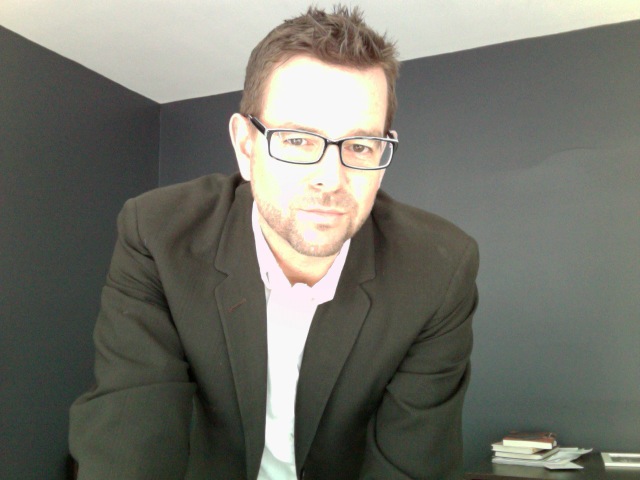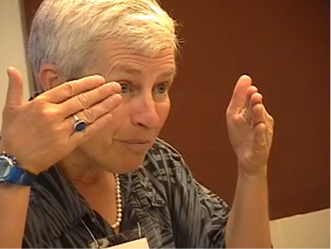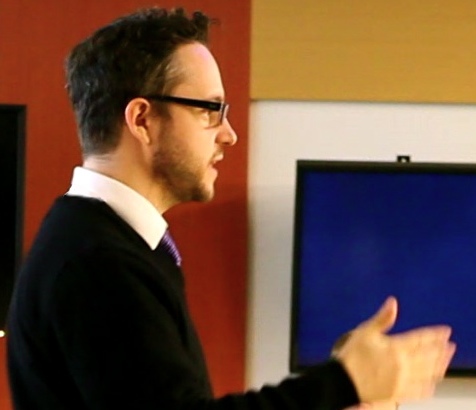Citation Information
Citation information for exhibits can be found on the individual exhibit pages and, for the collection as a whole, below. Additionally, bibliographic metadata has been embedded in relevant pages using COinS and RDF
Requests for Permissions
For personal noncommercial use, readers may download/print a copy of the ebooks found on this site, and may link to this page. Readers may not reproduce this ebook or project, or display it on another web site. In no way does the above affect any of the following rights: fair use rights; the author's moral rights; rights other persons may have either in the work itself or in how the work is used.
Per U.S. copyright law, readers may, without permission, use limited portions of copyrighted work for the purpose of analysis, review, critique, parody, etc. All such use should be accompanied by appropriate attribution to both the author and the publisher.
Requests for permission to use materials from this ebook or project in new publications should be directed to Utah State University Press on behalf of Computers and Composition Digital Press.
Utah State University Press
7800 Old Main Hill
Logan, UT 84322-7800
http://www.usupress.org/contact
Accessibility Statement
Computers and Composition Digital Press is committed to doing everything we can to make our website and ebooks broadly accessible for users of diverse technologies (e.g., screen readers, mobile devices) as well as for users who have a wide range of abilities and preferences for accessing communicative modalities (visual, aural, alphabetic). When appropriate, alternate versions of exhibits have been provided. If you have trouble accessing an exhibit, please contact the author using the contact information provided in the exhibit's technical requirements.
About the Editors and Designer
Many of the tasks associated with editing a collection of digital exhibits designed to be published and read online mirror those familiar to editors of printed collections of essays: issuing a call for contributors, selecting the contents, working with authors as they develop their contributions, proposing the collection to publishers, working with editors during the peer review and publication process. Other tasks, however, were unique to digital publication: reading/viewing, evaluating, and commenting on exhibits that, in total, contain 35 different file types; determining how to make all of those diverse materials accessible to readers/viewers who might not be able to see the text or video or hear the audio; creating a coherent online “framework” for such a diverse collection of materials. Such a project requires a team effort.
The editors issued the original call for guest curators, selected exhibits, and worked with curators as they developed their exhibits through multiple rounds of revision. Along the way, the editors developed common analytical threads that curators were asked to weave through all of the exhibits, drew up guidelines for style and accessibility appropriate to each of the several formats used in the exhibits, worked with the site designer to build the Web framework for the collection, and worked with editors and reviewers at the Computers and Composition Digital Press through the review and publication process.
 Editor Scott Lloyd DeWitt, Associate Professor of English, came to The Ohio State University in 1992. For ten years, he taught writing, developed academic programs, and conducted research in computers and composition studies on the Marion Campus. An OSU Alumni Association Distinguished Teaching Award recipient for his pioneering teaching approaches with technology, DeWitt moved to the Columbus campus of OSU in 2002 to become the director of The Digital Media Project, the English Department's digital media production and teaching studio. With Kip Stasma, DeWitt edited Contexts, Intertexts, and Hypertexts (Hampton 1999), a collection of studies that connects the theoretical aspirations of hypertext with direct classroom applications. DeWitt is the author of Writing Inventions: Identites, Technologies, Pedagogies (SUNY 2002), a book that offers instructional stories, histories, studies, and classroom applications and connects the theoretical aspirations of the field with the craft of innovative computer-enhanced composition instruction. Writing Inventions was awarded the “Computers and Composition Distinguished Book Award” in 2003. In 2004, DeWitt directed the Battelle Endowment Institute for New Media and Writing Studies on the OSU campus. He directed the First-Year Writing Program from 2007-2011 and is the co-creator (with Michael Harker and Aaron McKain) of Commonplace. He co-directs, with Cynthia Selfe, the annual Digital Media and Composition Institute at Ohio State. He is currently working on a book examining a corpus of 5000+ pieces of student writing, “The Optimistic Turn: Authentic Contexts for Peer Review in the Composition Instruction”. DeWitt is currently serving as Vice Chair of Rhetoric, Composition, and Literacy in the Department of English.
Editor Scott Lloyd DeWitt, Associate Professor of English, came to The Ohio State University in 1992. For ten years, he taught writing, developed academic programs, and conducted research in computers and composition studies on the Marion Campus. An OSU Alumni Association Distinguished Teaching Award recipient for his pioneering teaching approaches with technology, DeWitt moved to the Columbus campus of OSU in 2002 to become the director of The Digital Media Project, the English Department's digital media production and teaching studio. With Kip Stasma, DeWitt edited Contexts, Intertexts, and Hypertexts (Hampton 1999), a collection of studies that connects the theoretical aspirations of hypertext with direct classroom applications. DeWitt is the author of Writing Inventions: Identites, Technologies, Pedagogies (SUNY 2002), a book that offers instructional stories, histories, studies, and classroom applications and connects the theoretical aspirations of the field with the craft of innovative computer-enhanced composition instruction. Writing Inventions was awarded the “Computers and Composition Distinguished Book Award” in 2003. In 2004, DeWitt directed the Battelle Endowment Institute for New Media and Writing Studies on the OSU campus. He directed the First-Year Writing Program from 2007-2011 and is the co-creator (with Michael Harker and Aaron McKain) of Commonplace. He co-directs, with Cynthia Selfe, the annual Digital Media and Composition Institute at Ohio State. He is currently working on a book examining a corpus of 5000+ pieces of student writing, “The Optimistic Turn: Authentic Contexts for Peer Review in the Composition Instruction”. DeWitt is currently serving as Vice Chair of Rhetoric, Composition, and Literacy in the Department of English.
 Editor Cynthia L. Selfe is Humanities Distinguished Professor in the Department of English at The Ohio State University. She is Co-founder and Executive Editor of Computers and Composition Digital Press/Utah State University Press (with Gail Hawisher) and the Co-Founder and Co-Director of the Digital Archive of Literacy Narratives (with H. Lewis Ulman). In 1996, Selfe was recognized as an EDUCOM Medal award winner for innovative computer use in higher education—the first woman and the first English teacher ever to receive this award. In 2000, Selfe, along with long-time collaborator Gail Hawisher, was presented with the Outstanding Technology Innovator award by the CCCC Committee on Computers. Selfe has served as the Chair of the Conference on College Composition and Communication and the Chair of the College Section of the National Council of Teachers of English. Selfe is the author of numerous articles and books about the relationships among people, literacy, and digital environments including Literacy and Technology in the 21st Century, the Perils of Not Paying Attention (SIU Press, 1999); and she is a co-author of Transnational Literate Lives in Digital Times (with P. Berry and G. Hawisher, Computers and Composition Digital Press/Utah State University Press, 2012), Literate Lives in the Information Age: Narratives of Literacy from the United States (with G. Hawisher, Lawrence Erlbaum, 2004), and Writing New Media: Theory and Applications for Expanding the Teaching of Composition (with A. Wysocki, J. Johnson Eilola, and G. Sirc; Utah State University Press, 2004). Selfe, along with Scott L. DeWitt, currently directs OSU’s Digital Media and Composition (DALN) institute, which—in combination with its earlier incarnation, Computer-Intensive Writing in Composition (CWIC) at Michigan Tech—stands as the longest-lived institute of it’s kind in the U.S.
Editor Cynthia L. Selfe is Humanities Distinguished Professor in the Department of English at The Ohio State University. She is Co-founder and Executive Editor of Computers and Composition Digital Press/Utah State University Press (with Gail Hawisher) and the Co-Founder and Co-Director of the Digital Archive of Literacy Narratives (with H. Lewis Ulman). In 1996, Selfe was recognized as an EDUCOM Medal award winner for innovative computer use in higher education—the first woman and the first English teacher ever to receive this award. In 2000, Selfe, along with long-time collaborator Gail Hawisher, was presented with the Outstanding Technology Innovator award by the CCCC Committee on Computers. Selfe has served as the Chair of the Conference on College Composition and Communication and the Chair of the College Section of the National Council of Teachers of English. Selfe is the author of numerous articles and books about the relationships among people, literacy, and digital environments including Literacy and Technology in the 21st Century, the Perils of Not Paying Attention (SIU Press, 1999); and she is a co-author of Transnational Literate Lives in Digital Times (with P. Berry and G. Hawisher, Computers and Composition Digital Press/Utah State University Press, 2012), Literate Lives in the Information Age: Narratives of Literacy from the United States (with G. Hawisher, Lawrence Erlbaum, 2004), and Writing New Media: Theory and Applications for Expanding the Teaching of Composition (with A. Wysocki, J. Johnson Eilola, and G. Sirc; Utah State University Press, 2004). Selfe, along with Scott L. DeWitt, currently directs OSU’s Digital Media and Composition (DALN) institute, which—in combination with its earlier incarnation, Computer-Intensive Writing in Composition (CWIC) at Michigan Tech—stands as the longest-lived institute of it’s kind in the U.S.
 Editor H. Lewis Ulman, Associate Professor of English, directs the Digital Media Studies program in the Department of English at The Ohio State University, co-coordinates the Humanities Institute's Digital Arts and Humanities Working Group, and co-directs the Digital Archive of Literacy Narratives (DALN). He regularly teaches courses in electronic textual editing and digital media studies, often working closely with special collections curators at The Ohio State University Libraries to explore with students what happens when we represent manuscript, print, and other archival materials in digital media. Professor Ulman has published books and essays on the history of rhetoric, environmental humanities, and digital humanities, including Things, Thoughts, Words, and Actions: The Problem of Language in Late Eighteenth-Century Rhetorical Theory (SIUP, 1994) and The Minutes of the Aberdeen Philosophical Society, 1758-1773 (Aberdeen UP, 1990).
Editor H. Lewis Ulman, Associate Professor of English, directs the Digital Media Studies program in the Department of English at The Ohio State University, co-coordinates the Humanities Institute's Digital Arts and Humanities Working Group, and co-directs the Digital Archive of Literacy Narratives (DALN). He regularly teaches courses in electronic textual editing and digital media studies, often working closely with special collections curators at The Ohio State University Libraries to explore with students what happens when we represent manuscript, print, and other archival materials in digital media. Professor Ulman has published books and essays on the history of rhetoric, environmental humanities, and digital humanities, including Things, Thoughts, Words, and Actions: The Problem of Language in Late Eighteenth-Century Rhetorical Theory (SIUP, 1994) and The Minutes of the Aberdeen Philosophical Society, 1758-1773 (Aberdeen UP, 1990).
Joining the Stories That Speak to Us project after final versions of the curated exhibits had been approved by the editors, the associate editor copyedited the text of all exhibits, checked HTML code for accessibility, and helped solve media display problems in several exhibits.
 Associate Editor Tim Lockridge is assistant professor of digital media studies in the Department of Communication Studies at Saint Joseph's University. His work has appeared in Reconstruction: Studies in Contemporary Culture and the Journal of College Writing, and he has published chapters in several edited collections. Tim's fiction and poetry has appeared in many literary journals, including the Mid-American Review, Passages North, and Diagram. He received his MFA in Creative Writing and his PhD in Rhetoric & Writing from Virginia Tech. His online portfolio can be found at www.timlockridge.com.
Associate Editor Tim Lockridge is assistant professor of digital media studies in the Department of Communication Studies at Saint Joseph's University. His work has appeared in Reconstruction: Studies in Contemporary Culture and the Journal of College Writing, and he has published chapters in several edited collections. Tim's fiction and poetry has appeared in many literary journals, including the Mid-American Review, Passages North, and Diagram. He received his MFA in Creative Writing and his PhD in Rhetoric & Writing from Virginia Tech. His online portfolio can be found at www.timlockridge.com.
Joining the Stories That Speak to Us project after initial drafts of the curated exhibits were complete and the technical profile of the project became clearer, the site designer worked with the editors to design and build an attractive and functional framework capable of accommodating this diverse collection.
 Site Designer Daniel Carter (www.daniel.inletters.com) has a MA in English Literature from The Ohio State University and is currently pursuing a PhD in Information Studies at the University of Texas, Austin. As a designer and developer, he has worked with clients ranging from non-profit organizations and publications to universities and large corporations. His research interests focus on text and interface design in the humanities.
Site Designer Daniel Carter (www.daniel.inletters.com) has a MA in English Literature from The Ohio State University and is currently pursuing a PhD in Information Studies at the University of Texas, Austin. As a designer and developer, he has worked with clients ranging from non-profit organizations and publications to universities and large corporations. His research interests focus on text and interface design in the humanities.
Acknowledgments
A project of this scope cannot succeed without generous support from institutions and individuals.
A grant from the Battelle Endowment for Technology and Human Affairs (BETHA) helped us caption video used in some of the exhibits, and a Research Enhancement Grant from the College of Arts and Sciences at The Ohio State University allowed us to hire a site designer.
Daniel Carter, who eventually joined the project as site designer, helped many of the curators meet technical challenges posed by their exhibits in his capacity as a graduate assistant in the Digital Media Project in the Department of English at The Ohio State University, and he graciously hosted the entire project on his personal Web server throughout the later stages of its development. Amy Spears, Manager of the Digital Media Project, also provided invaluable support for local curators. OSU student Karl Fredal captioned many of the videos used in the exhibits.
Timothy Lockridge helped make the project a reality with his talented editing of the final exhibits, making each more accessible to a wider range of readers and making each of us look better than we knew we could. Tim did this in the midst of completing his dissertation and assuming his first position as a faculty member at St. Joseph's University in Philadelphia.
Gail Hawisher and the anonymous reviewers at the Computers and Composition Digital Press—a digital imprint of Utah State University Press—provided patient and valuable guidance as we negotiated the always unique challenges of online publication, and we would like to thank Utah State University Press for their visionary support of peer reviewed, open access, online publication.
We would also like to thank Patrick Besong, developer of the MovieCaptioner application, for his timely technical support. Multi-format online academic publication often pushes software, hardware, and networks—not to mention editors, authors, and readers—into uncharted territory, and responsive software developers can help projects realize their goals.
Finally, we thank the thousands of individuals, far too numerous to name individually, who have contributed personal literacy narratives to the Digital Archive of Literacy Narratives (DALN), which, along with Stories That Speak to Us, stands on the foundation of their generosity.
